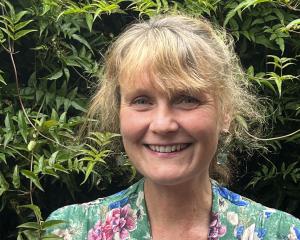
Historian and theologian Dr Alistair Reese is touring the country this month to speak on the Treaty of Waitangi as a covenant of reconciliation.
The event, "He Tatau Pounamu", will also explore the role of the church in relation to the Treaty.
Dr Reese first became interested in te ao Māori in the 1970s.
"I was taken to a marae in Taranaki, on a pā called Parihaka. I was just a young man and didn't know much about our stories, like most people."
Learning about the history of Parihaka led him to become enamoured with te ao Māori and New Zealand history.
"It moved me deeply, and moved me enough to spend the last however many years seeking to understand it and hopefully be a part of the conversation."
His interest in the Treaty came after, he said.
Dr Reese recalled a speech given by 1932 Governor General, Lord Bledisloe, who purchased and gave the land of Waitangi back to New Zealand.
"He said this phrase, ‘Let Waitangi be a tatau pounamu for us all’, and I've always been struck by that phrase.
"It's a phrase that, obviously, he received from te ao Māori, which really is talking about reconciliation."
The name of his event translated to "greenstone door", a metaphor for enduring peace.
"In my naivety, when Pākehā started hearing about the injustices that have taken place, I thought they would instantly get it.
"But it's been a bit more complicated than that."
His target audience for the event was Pākehā, but Māori were welcome.
"Māori have been sitting at this table and having these conversations around the Treaty for generations, but for Pākehā it's a relatively new thing.
"We've got to get up to speed - that's the first thing."
Dr Reese held his event in Auckland and Wellington earlier this month and said more than 600 people attended.
"We need to sit at the table together, find opportunities to be able to discuss it, hopefully rationally and not in a derogatory and destructive way."
Dr Reese’s studies were focused on Pākehā identity, post-colonialism, reconciliation, prophetism and exploring what Christianity might look like in an indigenous form.
The Treaty was not going away and it would continue to be a means of reconciliation between Māori as tangata whenua and settlers as tangata tiriti, he said.
Letting the Treaty be a pathway of reconciliation would allow us to call ourselves a "moral nation".
"Let it be up a tatau pounamu."
The event will take place on Monday night at Knox Church. Those interested in attending can register through the Venn Foundation website.
Advertisement













